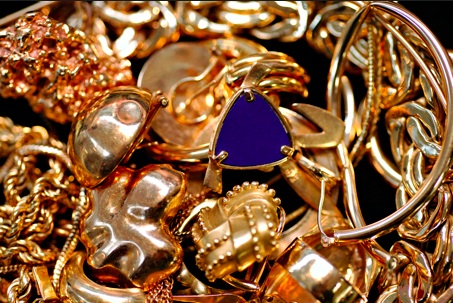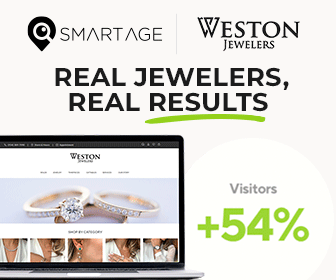Articles and News
How (And Why) To Get A Proper Valuation For Your Business Even When It’s Not For Sale | November 20, 2013 (0 comments)

Merrick, NY—The best time to prepare a business for sale is long before the owner ever decides to sell it, says Bob Pullar, founder of Owners’ University, an organization that helps business owners with valuation. It takes a minimum of 18 months—really closer to three to five years—to properly value a business to get the maximum return on a sale, he says.
“Don’t wait till you’ve 100% decided to sell before you start the process. Find out now what your business is worth,” says Pullar. Even if you have no plans to sell, ever, getting a proper business valuation is an exercise worth doing. Seeing your business as a potential buyer might gives a whole new perspective and points out problem areas you might not have recognized, he says.
But if you think a sale might be in your future within the next 10 years or so, Pullar recommends getting a jump-start now. Business owners of Baby Boomer age especially need to be proactive, he says, because the competition will be fierce. Medical science and the costs of advancing age have greatly diminished the huge transfer of personal wealth that was predicted to come to Boomers from their Depression-era parents (it’s often going to the nursing home for Mom or Dad’s care), but Pullar believes there will be a huge transfer of Boomer-owned businesses as this generation marches toward retirement.
“Most entrepreneurs have 60% to 70% of their wealth tied up in the business. But instead of a huge opportunity, an oversupply of businesses for sale can drive down the valuation.” It then becomes a buyer’s market for the cream of the crop, says Pullar.
It’s already a tough market for selling luxury jewelry stores, says Jeff Gordon, CEO of The Gordon Company, a Florida-based company that specializes in helping luxury jewelers sell, transfer, or raise cash for their stores.

Jeff Gordon
“[Since 2008] it’s virtually impossible to find financing, especially for businesses under $5 million. Asset-based lending is only seen at $5 million and up,” Gordon says. By contrast, a very small business—one worth $100,000 or so—may find a buyer who has cash or can take it out of home equity. But for almost anything in between, the money simply is not there.
“Unless someone has the capital to buy, when it gets into bigger dollars they’re going to need financing, and very few lenders are taking risks unless that’s the philosophy of the bank—which then usually translates into much higher interest rates,” explains Gordon. “There’s as much work involved in a $1 million loan as a $5 million loan—same paperwork, same filings, but less in fees and returns.” Alternative sources of funding such as venture capitalists and hedge funds are an option, but Gordon says they too generally want transactions of $5 million or more.
“I don’t see major changes. It may loosen a bit but I don’t think this is going to change,” he predicts.
Overall, the number of specialty retail jewelry stores in the United States is shrinking. According to Dione Kenyon, president of the Jewelers Board of Trade, about 450 retail jewelers closed up shop in the first nine months of 2013. Most of those were closings, not bankruptcies or consolidations, she told The Centurion.
New jewelry stores are opening--Kenyon says 169 opened this year as of September 30--but Gordon believes very few new jewelry stores are guild-type operations. But the numbers are improving slightly, says Kenyon: the ratio of closings to openings is 2.7:1 this year, vs. 3:1 last year, so there is less contraction.
Retail jewelry is not a hotbed of mergers and acquisitions. When a major chain is bought—such as Berkshire Hathaway’s acquisition of Helzberg and Ben Bridge, or Gitanjali’s of Samuels—it makes news, but if an independent jewelry store is going to continue after its owner retires, it’s often an employee or manager who is buying out the business, or sometimes two jewelers will form a partnership to buy the business, says Gordon. But it’s a buyers’ market.
There are three key elements to getting a small business ready for sale, says Pullar. They are:
- Having an annually reviewed or audited financial statement;
- Understanding the trends of the business;
- Having a succession plan in place.
It is well worth spending the money to have a third party evaluate the business’s financial statements, suggests Pullar. Millions of small businesses don’t take this step, but Pullar says it’s like buying a house: you’d want an inspector go over it top to bottom, so why not have the same process with your business?
It’s also critical to understand what trends are in the business for the previous three to five years. Has it maintained its revenues? How is its cash flow? What are its margins? Most importantly, if any of those figures are erratic, why?
Finally, says Pullar, it’s important to have a succession plan in place. Will the current owner stay involved? Often that’s the case—he or she will want some involvement but not day-to-day management. Or if the owner is planning to exit completely, who is going to run the business?
“The buyer will want to hear who’s minding the store,” says Pullar.
Gordon concurs. “Warren Buffett has famously said he doesn’t buy businesses. He buys the people and the management,” he says. There is value in an owner’s name and reputation, especially in a luxury jewelry store, but ironically it’s not the business’s most valuable asset. That, says Gordon, is the mailing list and email list. "It’s value you can sink your teeth into,” he says.
Inventory and real estate. Ironically, despite the intrinsic value of precious metal and gems, a jeweler’s inventory is the least valuable asset to a potential buyer of the business. This is one area where the jewelry industry differs from other industries. Pullar says it’s usually required [for non-jewelry businesses] that the inventory stay with the business. It’s considered part of the working capital.
But jewelers will want to reduce inventory levels, and especially toxic inventory, emphasizes Gordon. Buyers want the fixed assets, not the inventory.

Despite its intrinsic value, inventory is not a jeweler's greatest asset. In fact, getting rid of toxic inventory is number-one on the list to get a store ready for sale. Image: Ottawacitizen.com
“That’s the advantage of the POS (point-of-sale) systems available today. If you’re looking to get out, you have to buy [inventory] with your head, not your heart. So many jewelers buy with their heart.” Too often, he hears jewelers say they don’t care if they have lots of inventory because “it’s my retirement.”
Don’t go there, he warns. “That can be very risky. Metals go up and down, and if you’re still living in the same town after you retire, you want to be able to hold your head high, not have a distress sale.” A luxury jeweler especially needs his or her going-out-of-business sale to have the same level of class as the business always had.
Even for non-jewelry businesses, the owner needs to recognize early in the process when he or she has too much inventory and have a plan for selling it off, says Pullar.
Other considerations come into play for selling a luxury jewelry business vs. a non-luxury business. The process is largely the same, but there are different market dynamics. For example, some of the premier jewelry and watch brands such as Rolex don’t automatically pre-approve a new owner to keep carrying the brand.
“Brands are what people are most nervous about,” says Gordon.
If the business's real estate is owned, should the owner sell it with the business? Both experts agree it's an individual call. “There’s more chance to sell the business with the real estate, but you can opt to sell the business but keep the building and lease it back,” says Gordon. Pullar says a strategic buyer [one who plans to actively run the business] is usually ok with buying the real estate, but a financial-only investor usually isn’t interested in it. And the owner also has to consider whether he or she is ok with being a landlord.
After the sale. What is the owner planning to do once the business is sold? Often the owner wants to remain involved with the business but shed the day-to-day responsibility, but equally many want to retire altogether and go play golf. For those who want to remain involved, Gordon says an option is either selling or leasing the brand and/or store fixtures to a new owner, and remaining involved as a brand ambassador. Or if the owner needs an infusion of cash but wants to remain active, look for a financial-only investor. And if a graceful exit is your goal, you want to get the greatest amount of value from your business.
Another consideration is a family sale. If Junior is buying the business, Pullar recommends the owner carry a note, which is a way to get around Junior wanting a break on the price. And make sure he or she is ready. “The most important thing is to make sure your son or daughter is properly trained. Just being ‘in the business their whole life’ isn’t enough. Do they really understand the financials, cash flow, etc.,” he warns.
Even if selling the business is still years—if not decades—away, Pullar emphasizes it never hurts to go through the valuation exercise.
“Looking at your business as a buyer would gives you a much better perspective. Even if you don’t sell the business, if you follow the recipe, you’re going to benefit.”







